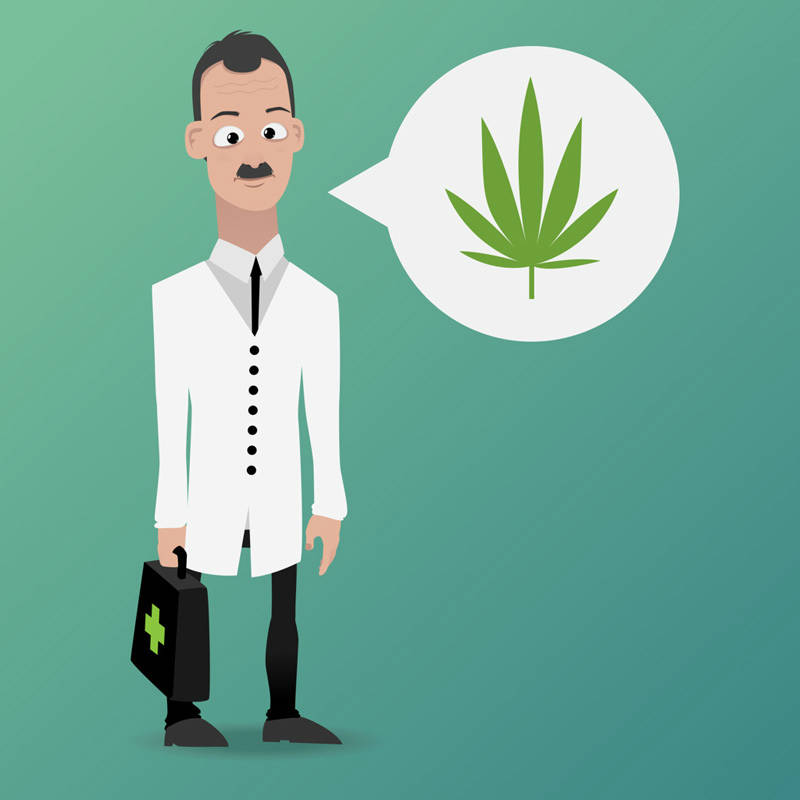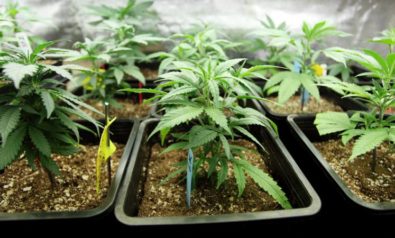As a number of US states experiment with the legal regulation of marijuana, the issue of drug reform is increasingly debated.
Background
After decades of global prohibition encompassing virtually all drugs except alcohol, there are signs that major reform of drug laws is starting to become a possibility. There is a growing awareness among researchers and policymakers that the current system of prohibition has failed in its goals. The proliferation of new psychoactive chemicals, along with technological developments that have created novel and covert distribution channels, pose real questions over the ability of law enforcement to keep up with the vast criminal enterprises that currently profit from the status quo.
In the 1920s, the United States banned the sale of alcohol, a policy that resulted in the opening of thousands of illegal bars across the county and led to the rapid rise of the mafia. Once this misguided experiment was brought to an end, criminal groups and the authorities shifted their focus to drugs. The following decades saw the introduction of increasingly restrictive policies, culminating in the 1961 UN Single Convention on Narcotic Drugs, and the War on Drugs spearheaded by US President Richard Nixon soon after.
Despite billions of dollars spent on interdiction, incarceration and eradication, drug use has continued to rise. The UN estimates that around 243 million people use illegal drugs, and the global trade is worth around $435 billion. This money is absorbed by vast criminal enterprises and even terrorist organizations.
In the US, punitive drug laws have led to the development of an expansive prison industrial complex, with the prison population growing exponentially since the 1970s. This has been characterized by huge racial disparities in arrests, prosecutions and sentencing.
Meanwhile, evidence from several countries has shown the dangers of attempting to tackle by force the gangs who control the market. In large parts of Mexico, the ongoing drug war launched by President Felipe Calderon in 2006 has resulted in the collapse of law and order, with tens of thousands of people having been killed since.
In recent years, two further advances have served to highlight the failure of the current system of prohibition. In 2009, first in Europe and then the US, the illegal drugs market was flooded with a set of “legal highs,” because they were developed and circulated faster than laws banning their sale could be passed. This short-circuiting of the law was solidified with the concurrent development of murky online marketplaces, concealed in the shadows of the dark web, most notably the Silk Road. These marketplaces have allowed drug users to buy virtually any quantity of any drug they like, and efforts by the authorities to shut them down have struggled to keep apace with the technological experts behind them.
Why is Drug Reform Relevant?
With the failures of drugs prohibition increasingly evident, recent years have seen the first tentative calls for change at a high level. Foremost on the reformist agenda is the moving of drug policy out of the criminal justice realm and into that of health. A harm reduction approach of this type is seen as a crucial first step in solving the problems currently caused by drugs and drug laws, but many go further and claim that only through legalization of the bulk of illegal narcotics can the criminal trade be brought under control.
Legalization in this sense does not imply an open market free-for-all, but rather the regulation of substances — in a manner similar to pharmaceuticals or alcohol, depending on the drug — so the highly lucrative trade is taken out of the hands of criminals and put into those of governments, thereby allowing not just for taxation, but also a much greater degree of quality control, reducing harm to users.
While the Netherlands’ long-time toleration of cannabis will no doubt be the most famous example of a country experimenting with a more liberal approach to drugs, it has perhaps been Portugal that has taken the boldest step to date. In 2001, all possession or use of small quantities of drugs ceased to be a criminal infraction, instead being dealt with through treatment or community service programs. In the years following the change in policy, drug use among adolescents and so-called “problematic” users declined, as did the rate of HIV infections in what had been the worst-affected country in the European Union. Nevertheless, all production and supply has been left in the hands of criminals.
With such a positive sign of the potential of policies that favor harm reduction over punishment, the calls for change gathered pace. In 2009, the chairman of the British government’s Advisory Council on the Misuse of Drugs, Professor David Nutt, was fired by the Home Office following his calls for the laws over individual drugs to more accurately reflect their harms.
His argument featured the now notorious claim that statistically, taking ecstasy is no more harmful than horse riding. Two years later, a panel of officials called the Global Commission on Drug Policy released a report calling for an end to the War on Drugs. The commission includes former Secretary-General of the UN Kofi Annan, former US Secretary of State George Schultz and the former presidents of several of the countries most affected by the illegal drug trade, including Brazil, Colombia and Mexico.
Of course, calls for liberalization have not been as forthcoming from serving politicians, though notable exceptions have arisen. In 2012, then-President José Mujica went against public opinion and began the process of legalizing cannabis in Uruguay, while newly elected President Tabaré Vázquez has said he will keep the policy unless it produces negative results. In January 2014, US President Barack Obama — whose administration has abandoned the phrase “War on Drugs” — stated that cannabis was no more harmful than alcohol. Most recently, Liberal Democrat MP Norman Baker resigned from his post as a UK Home Office minister following a dispute with Home Secretary Theresa May, when the latter reportedly tried to block the release of a government-commissioned report that found tough laws did not lead to lower drug use.
Nevertheless, serious change is still some distance away. The British government shrugged off Baker’s challenge with little concern, instead continuing to highlight the dangers entailed by certain drugs, such as high-strength “skunk” cannabis. In the US, Obama has in fact done very little to change the legal situation, beyond placing a stronger emphasis on treatment and going some way to addressing the long-standing disparity between crack and cocaine penalties, seen by many as racially biased.
A number of US states may be experimenting with the legal regulation of cannabis, but only with the tolerance — not approval — of the federal government, with no guarantee that this will continue into a future administration. While the likes of Uruguay, the Netherlands and Portugal may be seen as setting useful examples of different approaches, we are likely still some way off from any government experimenting with the broad regulation of illicit drugs. Yet the dialogue is starting to change, and with that, the prospect of the law following suit will only increase.
We bring you perspectives from around the world. Help us to inform and educate. Your donation is tax-deductible. Join over 400 people to become a donor or you could choose to be a sponsor.
The views expressed in this article are the author’s own and do not necessarily reflect Fair Observer’s editorial policy.
Photo Credit: Thomas Morris / Beatriz Gascon J / Shutterstock.com
For more than 10 years, Fair Observer has been free, fair and independent. No billionaire owns us, no advertisers control us. We are a reader-supported nonprofit. Unlike many other publications, we keep our content free for readers regardless of where they live or whether they can afford to pay. We have no paywalls and no ads.
In the post-truth era of fake news, echo chambers and filter bubbles, we publish a plurality of perspectives from around the world. Anyone can publish with us, but everyone goes through a rigorous editorial process. So, you get fact-checked, well-reasoned content instead of noise.
We publish 2,500+ voices from 90+ countries. We also conduct education and training programs on subjects ranging from digital media and journalism to writing and critical thinking. This doesn’t come cheap. Servers, editors, trainers and web developers cost money.
Please consider supporting us on a regular basis as a recurring donor or a sustaining member.
Support Fair Observer
We rely on your support for our independence, diversity and quality.
Will you support FO’s journalism?
We rely on your support for our independence, diversity and quality.










Last i checked cancer isn’t harmless either, which cannabis extract known as rick simpsons help oil can help eradicate. Overall i like the fact that its not a one sided story
You mentioned that consuming cannabis as well as other things such as coffee at a young age can alter the development of the brain due to a “plasticity property”. You go on to loosely associate the crop with caffeine and tobacco, which are both addictive, and you conclude that because you associate it with bad things, that any alteration of the brain’s development must be a bad one. I doubt you’re right about that, but even if you are, your reasoning here is retarded. I think that more likely, at a young age, you were taught that whatever the authorities tell you over and over must, in some way, be right, and your brain plasticized itself around this fallacy. Do yourself a favour and learn to do proper science.
For the most part I think cannabis helps me to concentrate a lot better than I normally would. Who doesn’t have a million things they could be getting on with and sometimes multitasking is necessary. Cannabis usually helps me to get engrossed in one thing that I am doing rather than my usual day-to-day of jumping from one task to another without getting very far at actually doing anything. So if anything it sounds like cannabis helps to make you smarter. Who woulda thunk it!